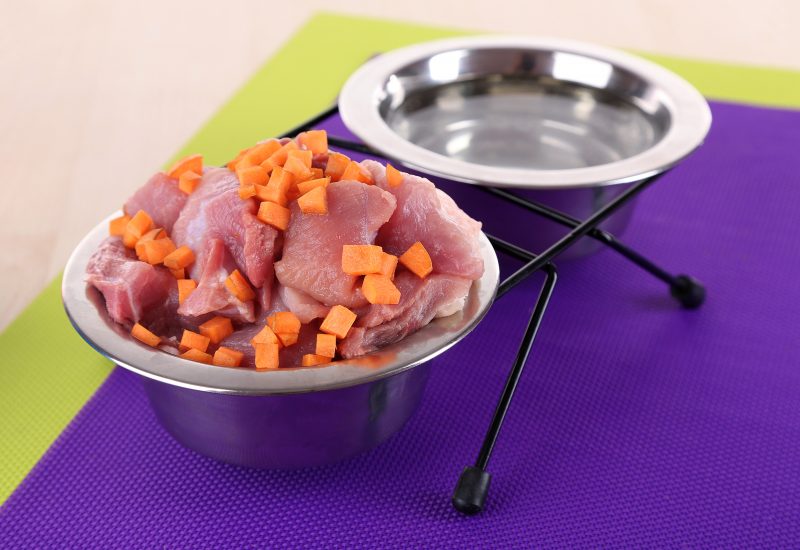| Your dog is solely dependent on you for all of their nutritional needs. This makes ensuring that they receive a balanced diet incredibly important. |
Your dog is dependent on you for many things – shelter, exercise, stimulation and yes, diet. In fact, your dog relies on you to meet all of their nutritional needs as a domestic animal and is unable to either go to the grocery store or forage for their own food in the wild. This makes ensuring that your dog receives a balanced diet incredibly important.
Ensure Balanced Foods in Proper Portions
Ensuring that you achieve the proper balance of various nutrients for your pet on a raw food diet will determine if it is successful and advantageous for the animal or if it may have damaging effects. For example, too much protein may cause kidney or liver problems. Too much fat will cause your pet to gain weight, while too little will have a negative impact on their skin and coat. Too much or too little fiber will cause trouble for your pet when digesting food and relieving themselves. These are just a couple of examples, but show the importance of achieving a balanced nutritious diet.
Experts believe that a dog should consume 2.5 percent of their weight in food each day. In our example of a 30 pound dog, that is three quarters of a pound of food, typically split between two meals.
A raw food diet is a combination of raw muscle meats and meaty bones making up about 60% of the diet and, organs, raw eggs, green leafy vegetables and fruits making up the rest.
Supplement with Probiotics
Because pets have been domesticated for generations, they do not have the same intestinal microflora profile of good bacteria to help them digest a raw food diet as they once did in the wild. Because of this, it is important to provide a probiotic supplement regularly to bulk up the good bacteria in their gut and aid in digestion and immunity.
Add a Multivitamin
While commercial pet foods have added vitamins and minerals to ensure an adequate nutritional profile, raw pet foods do not. As such, it is important to supplement with a multivitamin formulated for your dog’s particular life stage to add back in vital nutrients that your pet is not getting in their raw diet.

